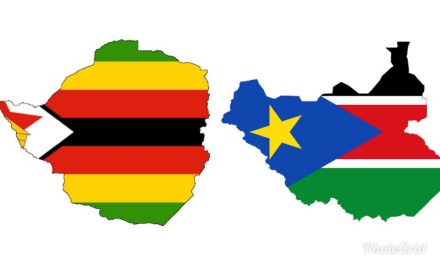Entrepreneurship is undoubtedly a big deal nowadays – everyone wants to become one. What most people do not seem to appreciate is that entrepreneurship is not for everyone. Over and above that, entrepreneurship is not a stroll in the park; it is tough. This is exacerbated by the high level of risk involved in putting together a startup. Over 100 million new startups emerge every year but over 80 per cent of them survive the past 3 years. Despite the so many reasons behind such a failure rate, it is evident there are challenges entrepreneurs face. Let us look at Zimbabwe and discuss some of those challenges.
Lack Of Access To Capital
Kick-starting the entrepreneurship journey or sustaining it requires money. Most entrepreneurs in Zimbabwe struggle to access capital. I have profiled several entrepreneurs in Zimbabwe and lack of access to capital is a recurrent issue. Right now I am even in touch with someone in Zimbabwe with a multi-million dollar business but capital is being elusive. The problem comes in many forms but I will just highlight two of them. Some fail to access capital locally because financial institutions require collateral.
Many aspiring entrepreneurs do not have that. After all, most of them are considered high risk due. Then we have those who seek to look for capital from foreign investors. Zimbabwe is considered high risk because of the mercurial economy and investors can be hesitant. Some are hesitant due to the political dynamics of the nation. All this goes to show that lack of access to capital is a huge issue for Zimbabwean entrepreneurs.
Lack Of Disposable Incomes
This is on the part of the customer or prospective customers. It also does affect the entrepreneurs directly as well. If disposable incomes are paltry on the part of the entrepreneur, they will be forced to eat into revenues generated. This will disrupt re-investing money back into the enterprise. So on the part of the customers, it affects revenue inflows. Entrepreneurship is all about selling and to be able to sell customers must be able to afford it. In Zimbabwe, many people do not have disposable incomes and that weakens their buying power. Thus landing customers proves an uphill task for many entrepreneurs in Zimbabwe.
Foreign Currency Costs And Shortages
Sadly Zimbabwe is a nation that imports more than it exports. This stems from the low or zero operating capacities of most local industries. This creates a scenario where most of what is needed as inputs have to be imported. Importation entails the use of foreign currency. Couple in the fact that most customers buy with local currency and the situation gets even worse. This then makes getting foreign currency both hard and expensive. At times this even affects entrepreneurs’ ability to price affordably as they hike prices to recoup costs incurred.
Patronage
I am not going to dig deeper into this one lest I begin to sound too political. I mention it here because it is an issue that cannot be ignored. Some entrepreneurs, in fact, most of them, fail to access certain pertinent things because of patronage. If they are not affiliated with certain political sides they are denied access. This affects entrepreneurs from financing issues to every aspect of setting up a startup. This is a serious problem that aborts the dreams of many capable and promising entrepreneurs.
Unstable Fiscal And Monetary Policies
The fiscal and monetary policies are highly volatile. Today an SI can be enacted and the next day another one. The stability of a startup can be shaken off its core overnight. This is one of the challenges that entrepreneurs in Zimbabwe have to grapple with. There are now so many regulatory frameworks to keep up with some of which are contradictory too. This makes strategic planning difficult because the operating environment is ever-changing.
Lack Of Access To Latest Technologies
The success of any startup in this day and age heavily relies on technology. No wonder we are actually in the fourth industrial revolution (4IR). Zimbabwe for the most part lags in terms of technologies or innovations. For example, cryptocurrencies are now the mainstream in most parts of the world. Here we are still to have clear positions on what the government’s stance is. In other nations, they are already rolling out 5G whereas here some areas still have erratic 3G.
Electric vehicles are now widespread elsewhere here it is still barely an active industry. I can so many examples but the lag and lack of access to the latest technologies are affecting many entrepreneurs locally. Some startups require the latest technologies which might have to be sourced abroad. This all makes it expensive to get the ball rolling. We are still very limited in terms of the full weight of digital marketing due to tech-related limitations.
Unavailability Of Current And Detailed Information Online
As a business and finance researcher and writer, I experience it virtually daily. There is very limited or zero current and detailed information on many subjects or areas. Let us suppose you want to find out the population of Bulawayo City it can be a tall order to find that information online. How many new startups emerged in Zimbabwe in 2020? How many entrepreneurs are there in Harare province? What are the top 10 most bought restaurant meals in Zimbabwe? I am just citing random questions whose detailed and current information you might not find online. This makes things like market research, for example, hard in Zimbabwe.
Lack Of Support And Encouragement
Support from the government, civic society, private sector and so on is hard to find in Zimbabwe. This is evidenced by the several entrepreneurs who ended up establishing their operations abroad. Lack of support is also an issue stemming from family, loved ones, friends, and so on. Sometimes entrepreneurs do not get support from loved ones and this drowns their drive. Zimbabwe is an environment where people mostly prioritize or emphasise academia and getting a good job. Thus embarking on entrepreneurship can be heavily discouraged. There are so many limiting beliefs and mindsets that lead to this lack of support and encouragement. It can end up being quite a lonely journey.
These are some of the challenges that entrepreneurs in Zimbabwe face. Becoming an entrepreneur in Zimbabwe requires tenacity and stubborn faith. There are lots of prospects though and those who brave it all stand to score big. Just because something is tough does not mean it cannot be done. Go for it! Entrepreneurship thrives on the presence of many pain points that need to be addressed.









It helps, you are amazing